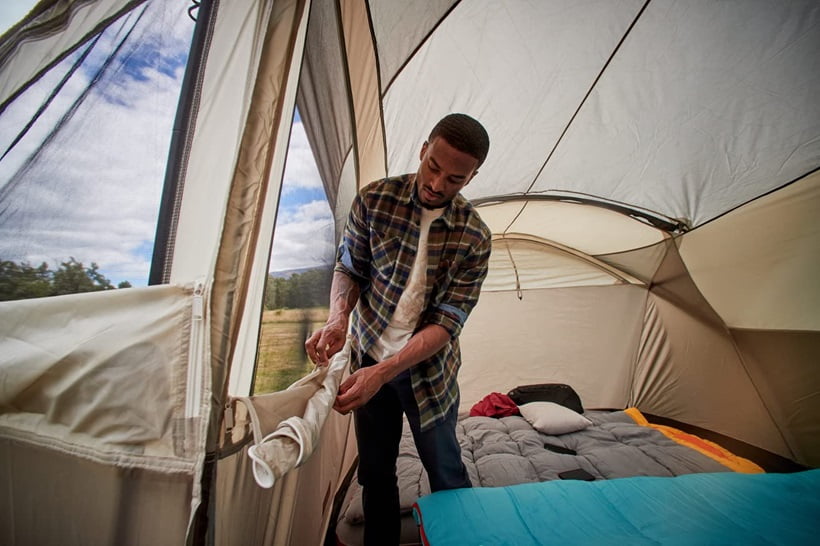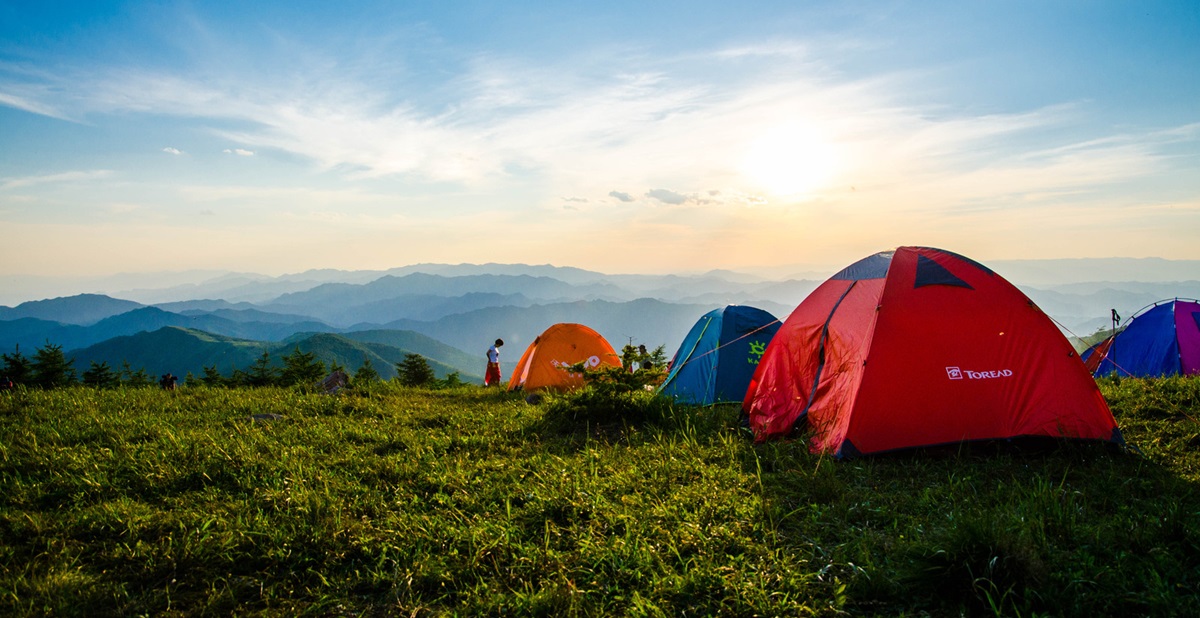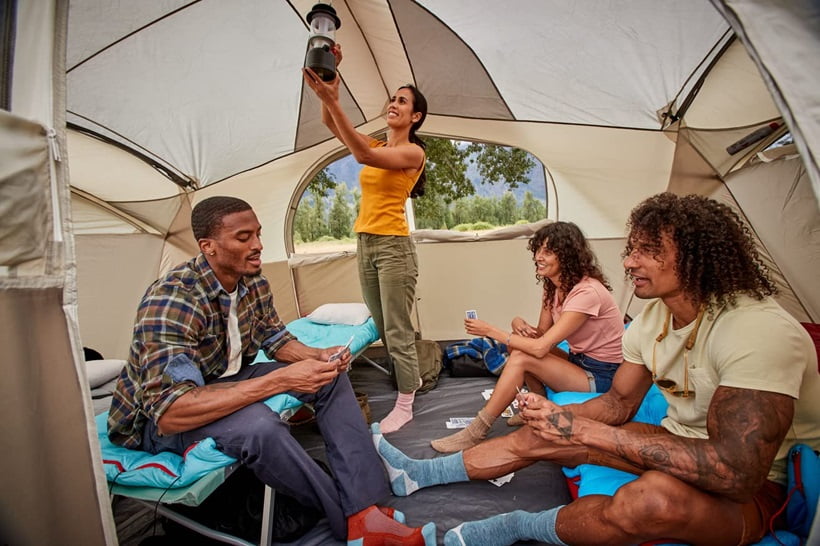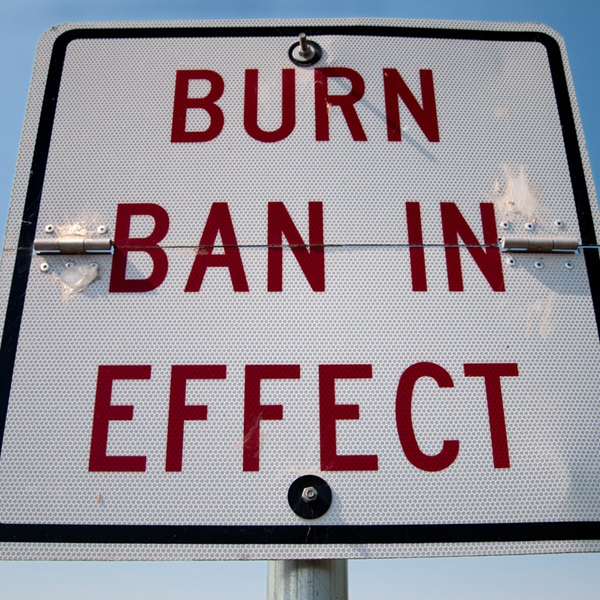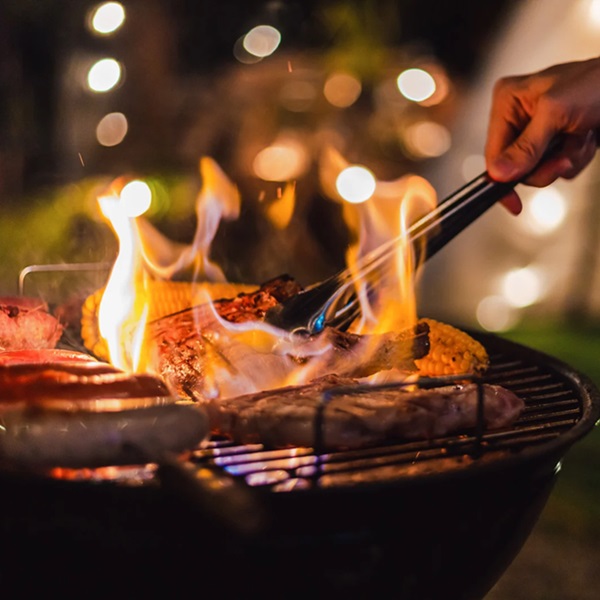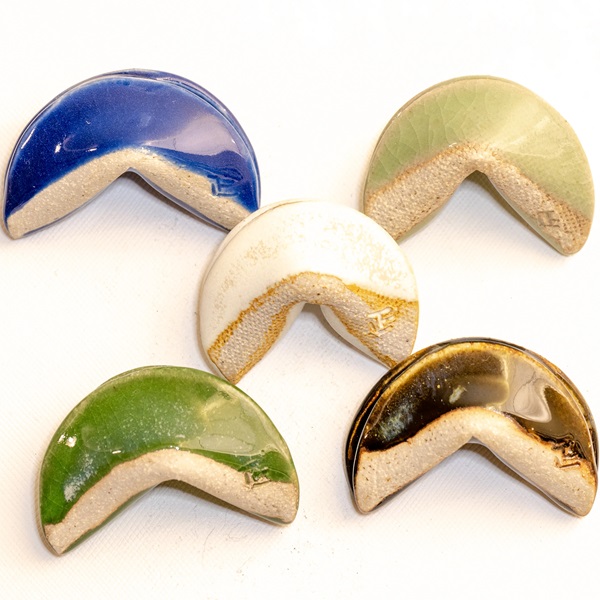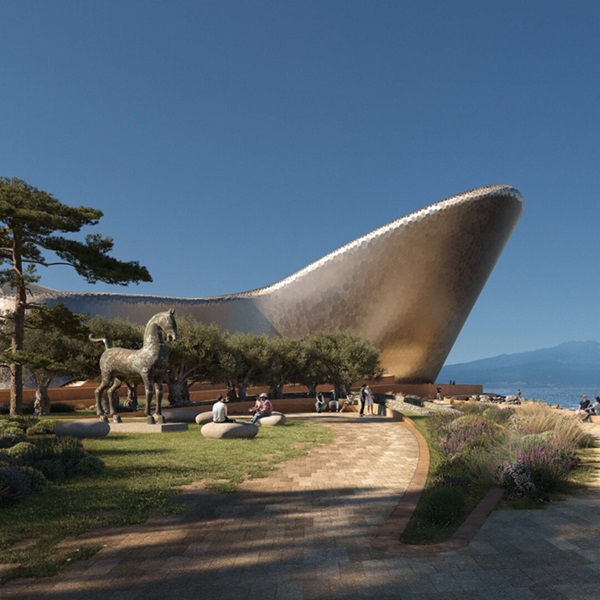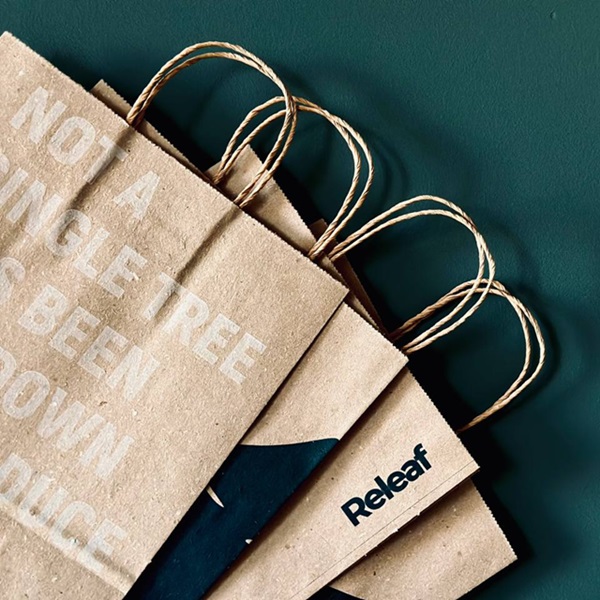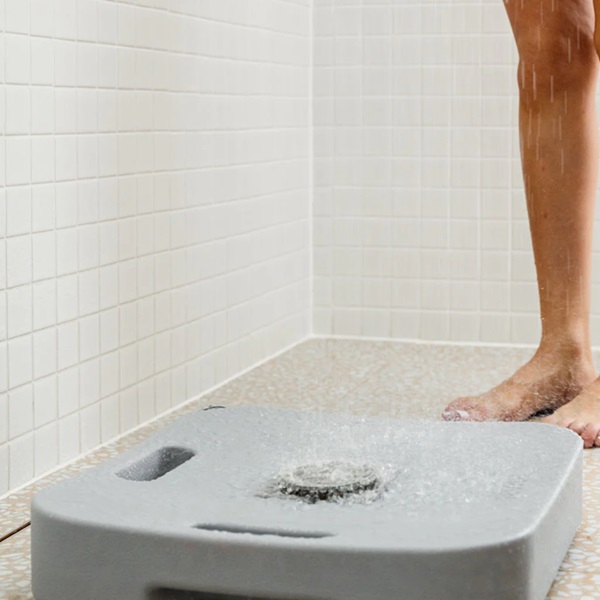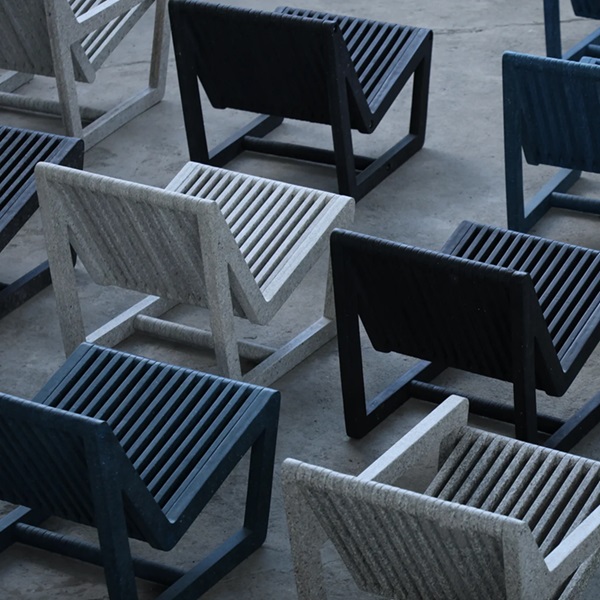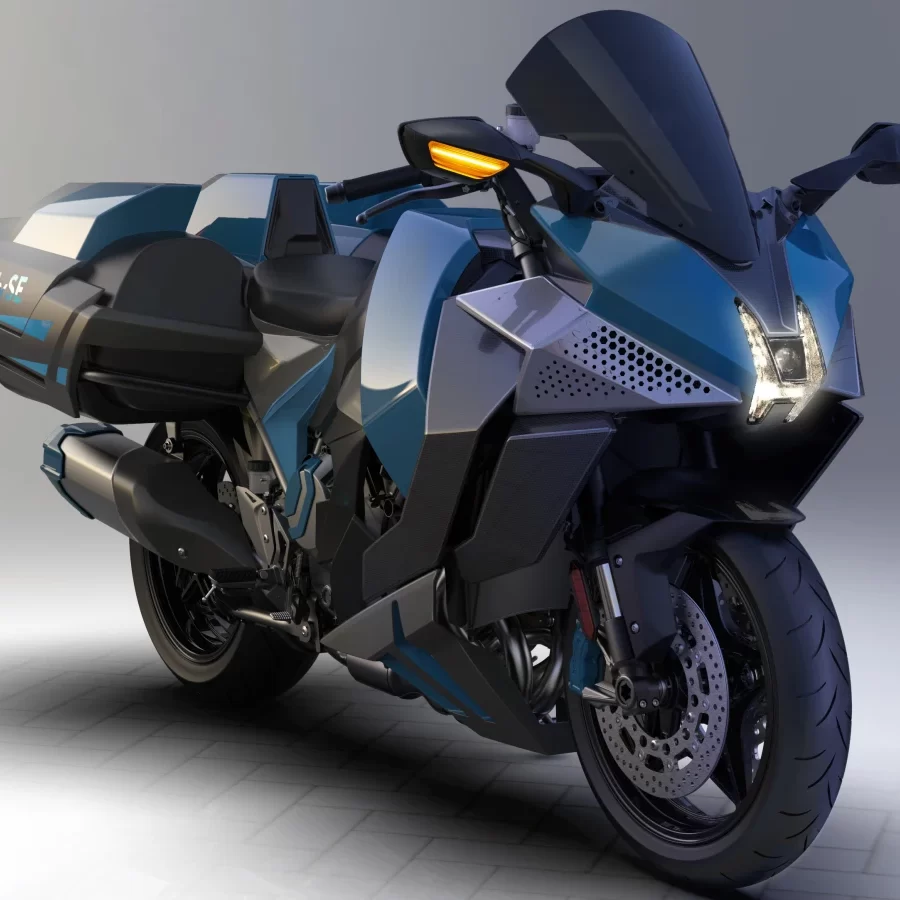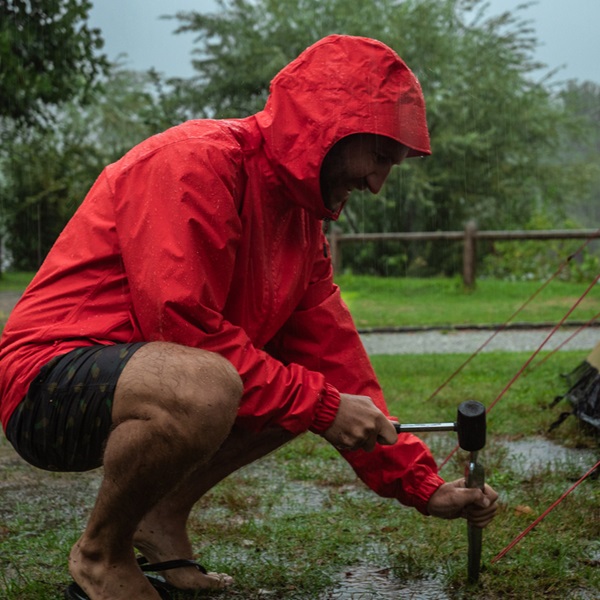
The best time of the year is, for sure, when you spend time in nature. In addition, the best ambiance in nature can be achieved through camping. The campgrounds and your peaceful time are the main attractions. However, you can enjoy your outdoor holiday with the right equipment, among which a camping tent has great importance.
It does not matter whether you spend most of your time in nature hiking, climbing, or running; you will need a camping tent at the end of the day. If you do not know how to choose the best camping tents, you can check out our guide below:
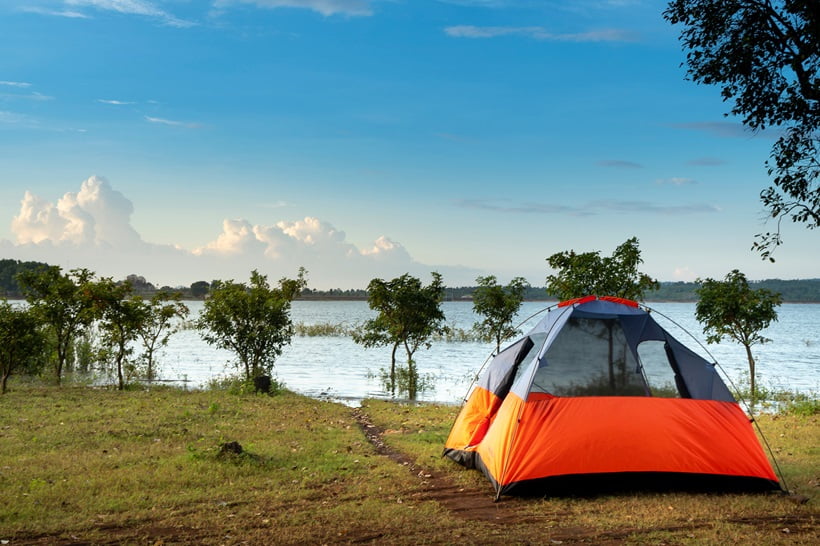
You should choose appropriate materials for camping tents.
Nylon tent for camping is water-resistant and stretchable, increasing their resistance to tearing and punctures. However, nylon degrades under UV exposure, which makes it less suitable for prolonged use in sunny environments.
Polyester is slightly heavier than nylon but resists UV damage better. Therefore, users prefer it more commonly for family camping tents. Polyester tents are among the best waterproof camping tents due to their polyurethane coating.
Canvas or cotton camp tents are durable and breathable. If you are going on a prolonged camping trip, a cotton camping tent is a great choice for you. In addition, they are naturally waterproof when wet but can be more cumbersome to transport and set up due to their weight.
Manufacturers blend cotton and polyester to produce a more balanced material called polycotton. The material is tougher than cotton and nylon; however, it has limitations in size and thickness.
DCF, also known as Dyneema Composite Fabric, is an ultra-light and strong camping tent material. It also has waterproof properties that are preferred by campers. However, as the material itself is expensive, you should consider the pros and cons.
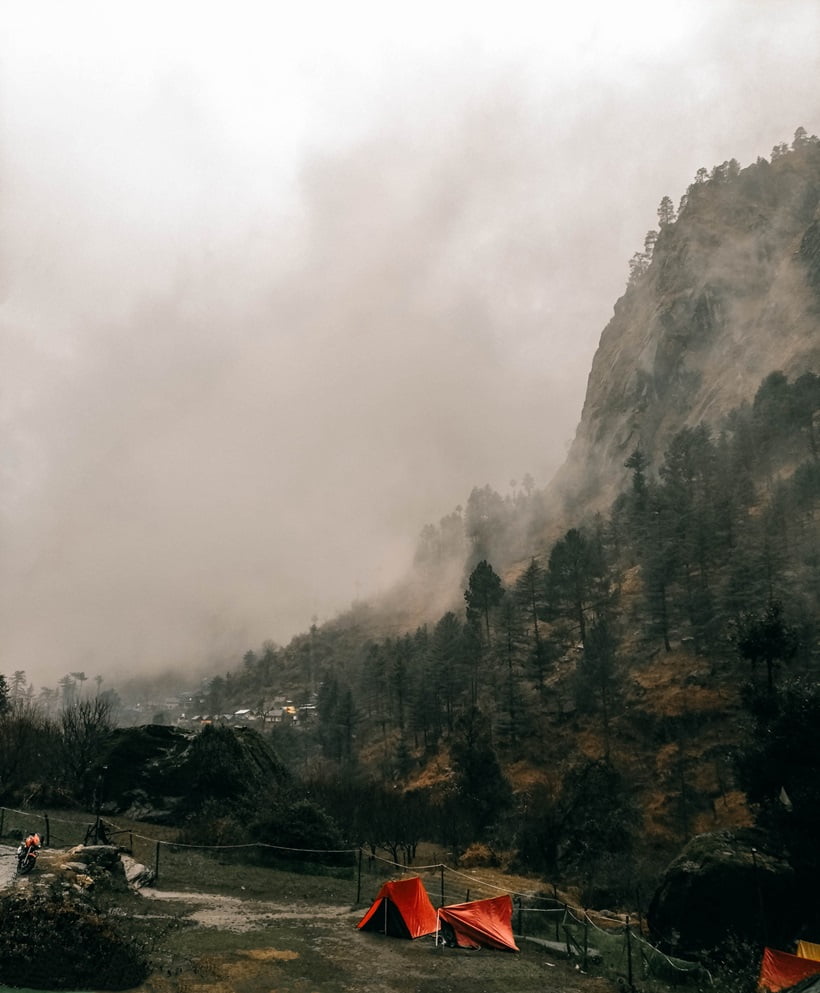
You should consider the weight of your tents when camping.
The weight of your tent camping is a critical factor, especially for backpacking. Nylon and polyester are suitable for lightweight setups, with nylon being the lighter of the two. Canvas tents are the heaviest and better suited for car camping or stationery campsites.
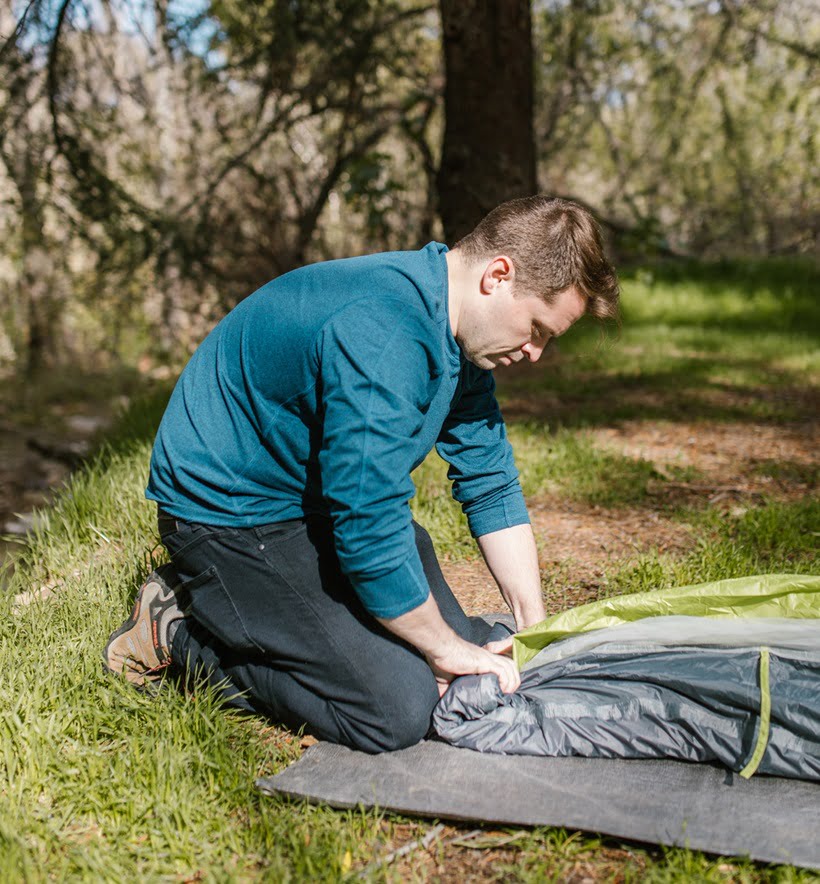
You should carefully check the design and features of your tent.
Freestanding vs. Non-Freestanding Tents: Freestanding tents are easier to move and set up, while non-freestanding tents offer more stability in windy conditions.
Peak Height and Shape: Cabin-style tents provide maximum height and livability, while dome-style tents offer better wind resistance.
Water Resistance: Look for tents with a high hydrostatic head rating for better waterproofing. Polyester and nylon tents, when coated, offer good water resistance.
UV and Weather Protection: Tents with UPF or SPF coatings provide extra protection against UV rays. Polyester performs better than nylon in terms of UV resistance.
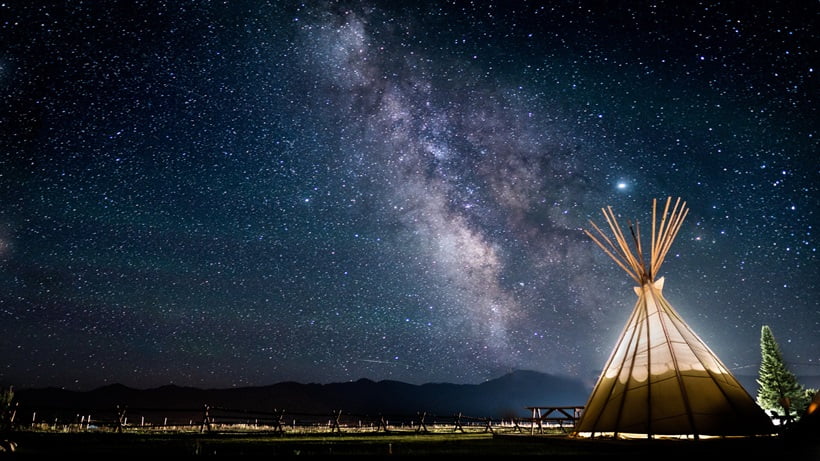
You should check for other considerations.
Ease of Setup: Tents that are quick and easy to set up can enhance your camping experience, especially in challenging conditions or when arriving late at a campsite.
Ventilation: Ensure your tent has enough mesh panels or openings for proper ventilation to avoid a stuffy interior.
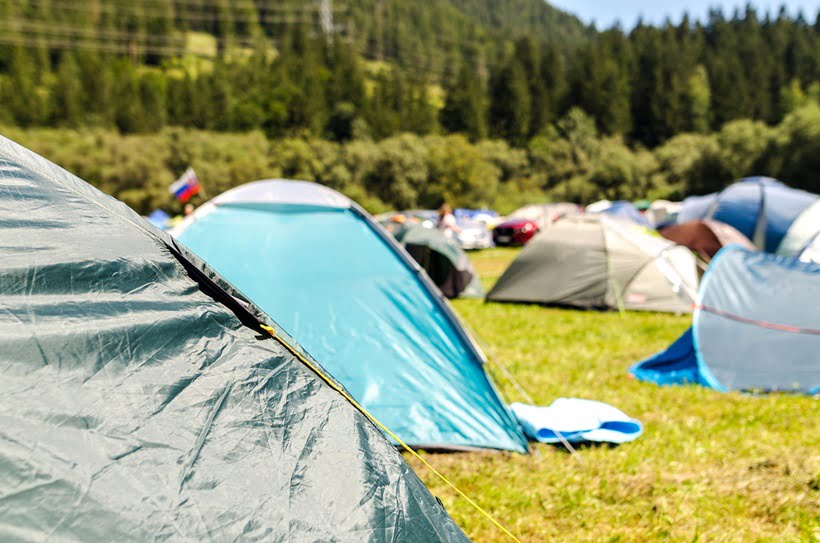
You should choose a tent according to the weather conditions.
3-season capping tents are ideal for spring, summer, and fall. In addition, these tents are designed with good ventilation, often featuring mesh panels for airflow. They offer protection from bugs, light rain, and moderate weather, but are not suitable for harsh winter conditions.
4-Season Tents (Mountaineering Tents) are built for harsher conditions, including winter camping. These tents are made with heavier fabrics and more poles. They offer less ventilation but better warmth retention, making them suitable for snowy or windy environments. However, they are generally heavier than 3-season tents.
Tent Features According to Seasonality: For warmer seasons, you should look for camping tents with ample ventilation to prevent condensation and ensure comfort during hot nights. In colder seasons, you should prioritize tents for camping with robust construction capable of withstanding snow loads and strong winds.
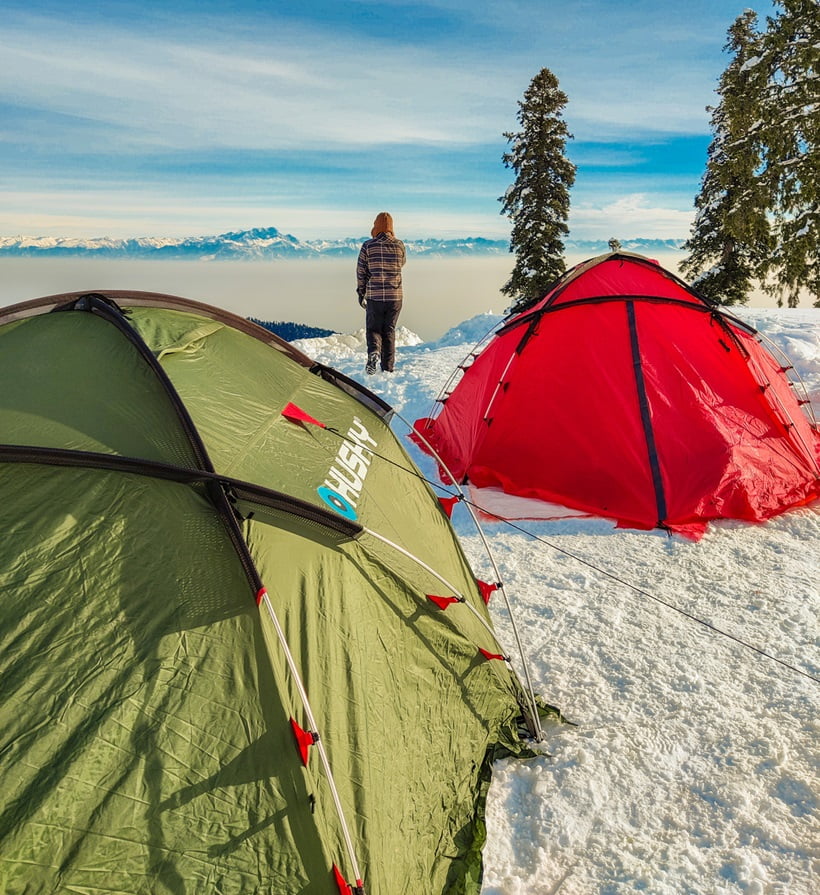
You should choose the right size of tent.
Number of Occupants: Tent sizes are usually described by the number of people they can accommodate. However, you should note that these ratings often assume a snug fit. For example, 4 person tents for camping typically offer just enough space for four sleeping pads laid side by side with no extra room. If you prefer more space or need to store gear inside the tent, consider sizing up.
Camping Style and Season: The type of camping and the season also influence the size of the tent you should choose. For instance, if you are backpacking, you will likely want smaller, like 2 person tents for camping, which are more compact tents. In contrast, if you are camping in winter, you will need extra space for cold-weather gear and clothing.
Tent Features Affecting Size:
Vestibules and Awnings: These extensions offer additional storage space for gear, reducing the need for a larger interior.
Room Dividers: Larger tents may come with dividers that offer privacy and organization that allow for more efficient use of space.
Peak Height and Floor Dimensions: Taller peak heights allow for standing room, while the floor dimensions can accommodate taller individuals or more sleeping arrangements.
Practical Tips:
For Solo or Minimalist Campers: A 1-person tent is usually sufficient. However, if you prefer extra space or having a lot of gear, a 2 person tents for camping might be a better choice.
For Families or Groups: It is often recommended to choose a tent that is rated for one or two more people than the actual number in your group. This ensures enough space for everyone and their belongings.
Consider Campsite Restrictions: Some campgrounds have restrictions on the size of tents, so you should check this before your trip.
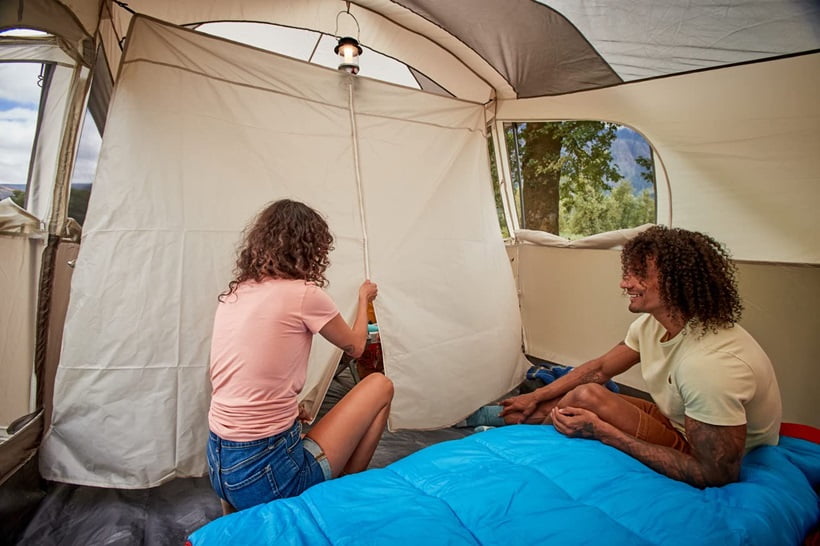
Standard Tent Size Recommendations:
You should consider:
A 3- to 4-person tent for a group of two.
A 5 to 6 person tents for camping might be more comfortable for 3 people.
Getting big tents for camping for larger groups.
